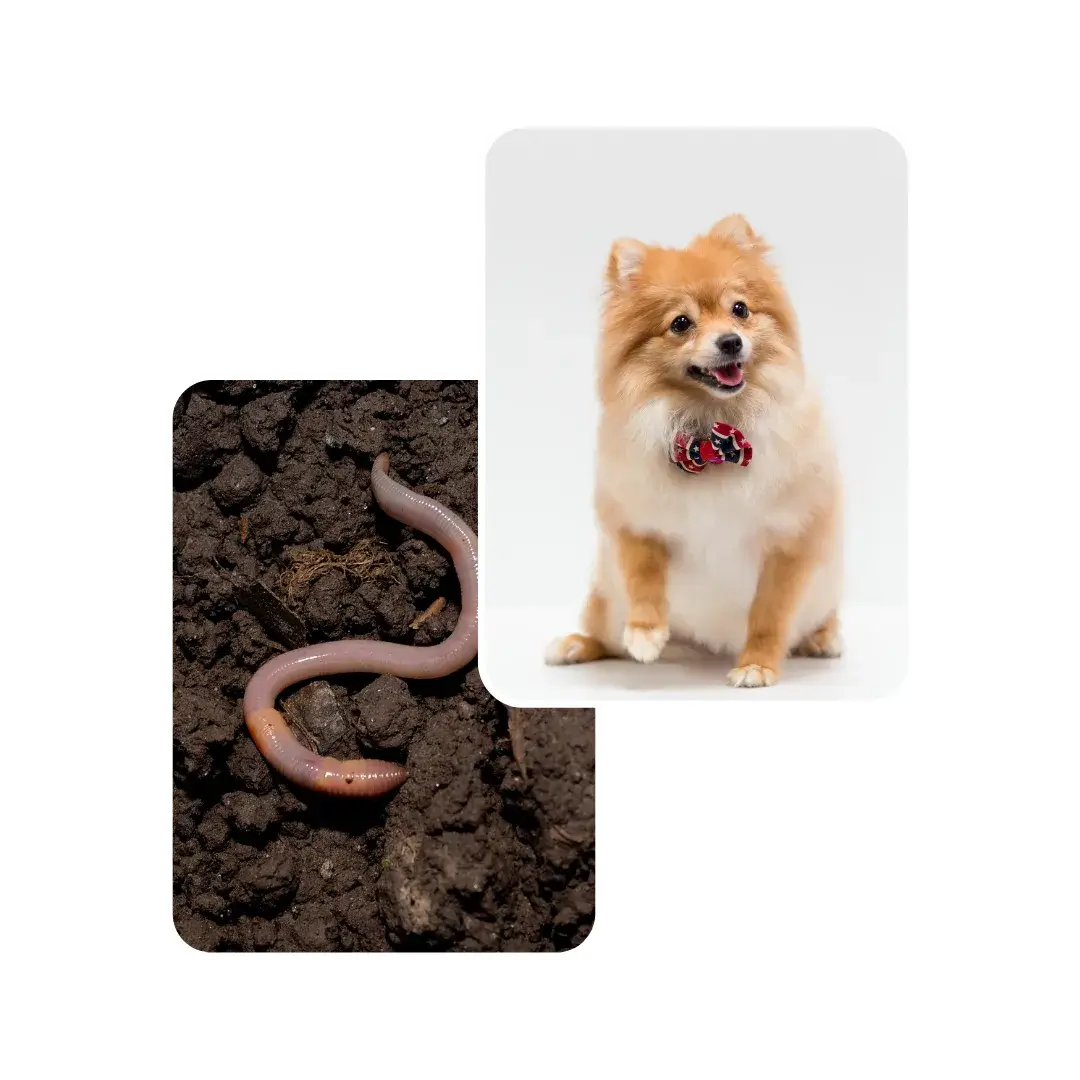Symptoms of Worm Infestation in Dogs
Visible Worms in Stool or Vomit
One of the most obvious signs is spotting worms directly. Roundworms look like long, spaghetti-like strands and may be seen in both stool and vomit. Tapeworms appear as small, flat segments, often resembling rice grains, stuck around the anus or in fresh feces.
Vomiting
Dogs with heavy worm infestations sometimes vomit live worms, especially roundworms. Even without visible worms, frequent vomiting or gagging can mean the worms are disrupting digestion or irritating the stomach.
Scooting or Itching Around the Rear
Tapeworm segments cause severe irritation around the anus, leading dogs to drag their bottoms along the floor (“scooting”). This behavior can also indicate anal gland issues, but combined with visible worm segments, it’s a strong sign of tapeworms.
Dull Coat and Poor Growth
Chronic worm infestations drain nutrients, leaving the coat dry, dull, and brittle. Puppies may fail to grow properly, showing delayed development, weak muscles, and fragile bones. A once-shiny coat turning rough is a red flag for internal issues.
Diarrhea or Soft Stool
Worms irritate the intestinal lining, leading to loose stools or diarrhea. Some cases may include mucus or streaks of blood. Chronic diarrhea weakens dogs, dehydrates them and is often overlooked as a minor stomach upset when in fact parasites are the cause.
Bloated Stomach
Puppies with roundworms often have a pot-bellied appearance, which owners mistake for “cute puppy fat.” In reality, it’s caused by worms filling the intestines. Despite the bloated belly, these puppies may be underweight and frail.
Coughing or Breathing Trouble
Heartworms and lungworms migrate to the lungs and airways, leading to persistent coughing, wheezing, and labored breathing. In heartworm disease, coughing may worsen with exercise and progress into heart failure if untreated.
Sudden Collapse or Death
In extreme infestations, especially with heartworms or hookworms, the burden on the heart or loss of blood can overwhelm the body. Dogs may suddenly collapse, go into shock, or die without warning. This is why prevention and regular dog deworming are essential.


